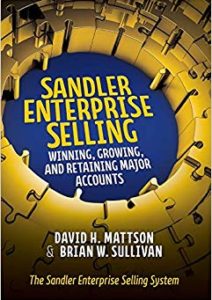In preparing for sales calls, we all have our processes that we follow to give us tracks to run on and to increase the likelihood of successful outcomes. And in that, I’ve just mentioned two key elements – having both a logical call path and a planned call objective. Of course, there’s more.
With the amount of information available today via online tools and sources, researching the individual contacts with which we’ll be dealing as well as their organizations is not only a mandatory exercise but a fairly easy one to undertake. And developing an understanding of the account’s known and/or likely needs is a natural connection to that research. Such an understanding is also enhanced by your knowledge and experience with similar types of accounts based on industry, size, location and other relevant factors. Of course, the understanding of the known and/or likely needs must be accompanied by an educated view into the associated pains that are at the heart of the communication to come. While these are all Sales Call 101 topics which we’ll not do a deep dive into in this article, suffice it to say that failed calls can likely be attributed to giving these survival skill areas less credit and time than they deserve. We all have battle scars to prove that point.
French philosopher and writer, Voltaire, wisely said “Judge a man by his questions rather than his answers”. Indeed. And in preparing for sales calls, we are often laser focused on questions – the questions that we plan on asking. We also, of course, work on preparing our answers, which are typically the scripted and well-rehearsed answers we’ve given in countless sales calls in which we’ve responded to objections. Focusing in this way is sales human nature – our questions and our answers. While natural, this way of thinking violates the four most important words in selling – “It’s not about you”.
Following Voltaire’s guidance, I would suggest that the most important questions you can prepare for are not those you will ask but those that will likely be asked by the prospect in the upcoming call. And the understanding discussed earlier of the individuals, the account, the needs and the pains should give you a great baseline for predicting what those questions will be. But perhaps the most important preparation you can do will be for the killer question – the one question you don’t want them to ask! Sales human nature again can rear its ugly head and cause us to benignly neglect this critical topic, in much the same way that we consciously ignore a medical problem that has the potential to create issues for us. At the end of the day, nothing good can come from keeping your head in the sand.
The one question you don’t want them to ask may be connected to a weakness in your product, service or firm either at the current time or in the future. Or it may be related to a cultural mismatch your organization has with the account. Whatever the reason, facing it in advance of the call gives you a chance to plan for addressing it, increasing your chances of a successful outcome as opposed to flying blind. And the actual killer question is always directly related to the individuals and firms on both sides of the upcoming transaction. Some typical examples might be “Will you lower your price?” or “Why are you better than your competitor?”. I spent thirty years with Capgemini and in the consulting world a favorite was “Have you ever done this before?”. I can assure you that our religious focus on planning for the killer question won us a great deal of business.
Preparing for the question does not in any way mean devising a deceptive answer. It does, however, mean that the reply you deliver will be much more thoughtful and likely more impactful. In a team selling scenario, you will have decided in advance who on your team will respond, as opposed to your prospect hearing crickets or a chorus of replies falling over each other at the same time. Your prep work will allow for the well-planned response to be delivered clearly and often be accompanied by a clarifying question which can result in your weakness being fortified or at least give you more fodder to target your response.
In the end, following this strategy will certainly increase the effectiveness of your overall call. Of course, you may not deliver a message that will fully address the account’s representatives’ concerns. After the call, though, they won’t say “Did you see how blown away they were by that question? They were clearly unprepared”. The banter will be more like “At least they were honest and clear with how they’d address the issue. That’s probably what we can expect if we decide to work with them”.
The one question you don’t want to hear. Be prepared.











Comments